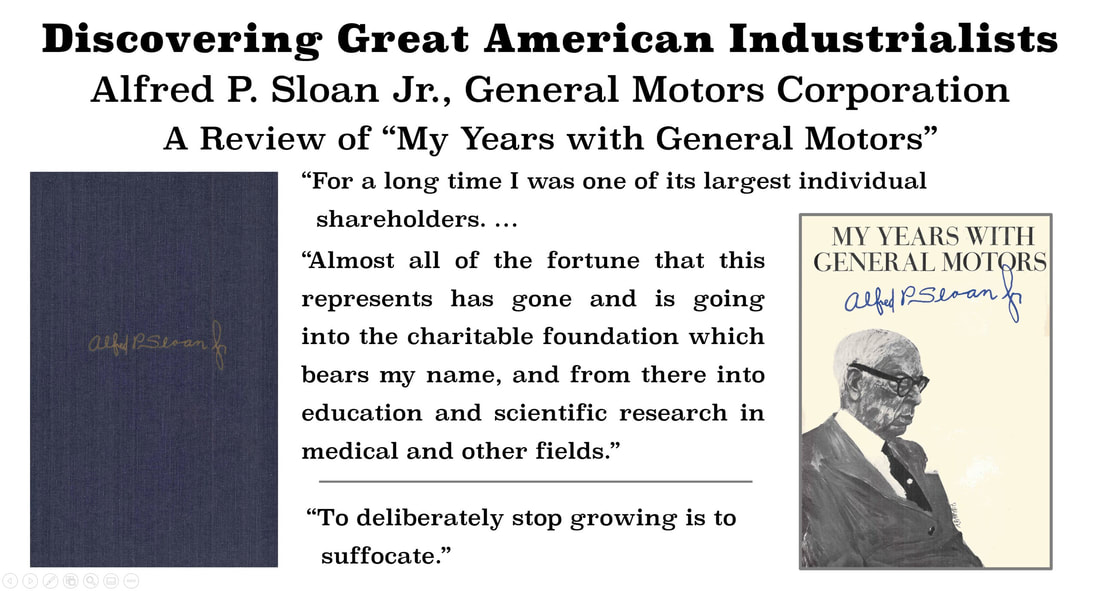Are Business Leaders Afraid of Sloan's Concept of "Coordinated Decentralization?"Are the chief executives who are breaking up the largest and best of America’s corporations making the right decision? Alfred P. Sloan would probably remark that the weakness in these institutions isn’t within the size and scope of their corporations, but in their top executives’ limited thinking and over-centralization of their organizations. Alfred P. Sloan’s book My Years with General Motors which was published in 1964 established his concept of leadership based on “coordinated decentralization.” A quote of Sloan’s from B. C. Forbes’ book the Automotive Giants of America published thirty-eight years earlier—in 1926, documents that this was not a new perspective for him but an overriding feature of his unique leadership style: “I never give orders. … It is better to appeal to the intelligence of a man than to the military authority invested in you. … You must grant a large measure of responsibility to the man placed in an important position. Such a man has, of course, unusual ability, unusual brains. But it is often hard to bring home to such a man in such a position that he does not know it all, and that he could profit by counselling with others. … “It is often extremely difficult to get a man [an executive] in the frame of mind where he will gladly seek to gather from other people in the organization what would offset … his [or her] own weakness. Yet this must be done in a large organization to bring about a maximum of efficiency and effectiveness.” Although this concept was not articulated directly by Watson Jr. when he reorganized the IBM Corporation after the death of his father, coordinated decentralization was at the heart of how the son kicked in the IBM’s growth afterburners. It is a concept that should be revitalized before breaking up the largest and best of our old American, industrialist-built institutions: IBM, General Electric, and Johnson and Johnson. Industrialist-minded chief executives understand that larger is better … easier to control … and easier to manage with coordinated decentralization … Chief executives must empower their top generals to lead but be ready to exercise a "coordinating influence" when necessary. Who are America's chief executives’ top counselors? Would they listen to Alfred P. Sloan? The country needs more industrialist-minded leaders like Alfred P. Sloan. Select the image or link below to read a review of Sloan's "My Years with General Motors."
0 Comments
Your comment will be posted after it is approved.
Leave a Reply. |
Peter E. GreulichPeter E. has been studying IBM and early American corporate history since his retirement in 2011. These are his thoughts and musings, and of those whose biographies and autobiographies he has read with links to articles and book reviews on this website. Contact the author directly.
|


 RSS Feed
RSS Feed